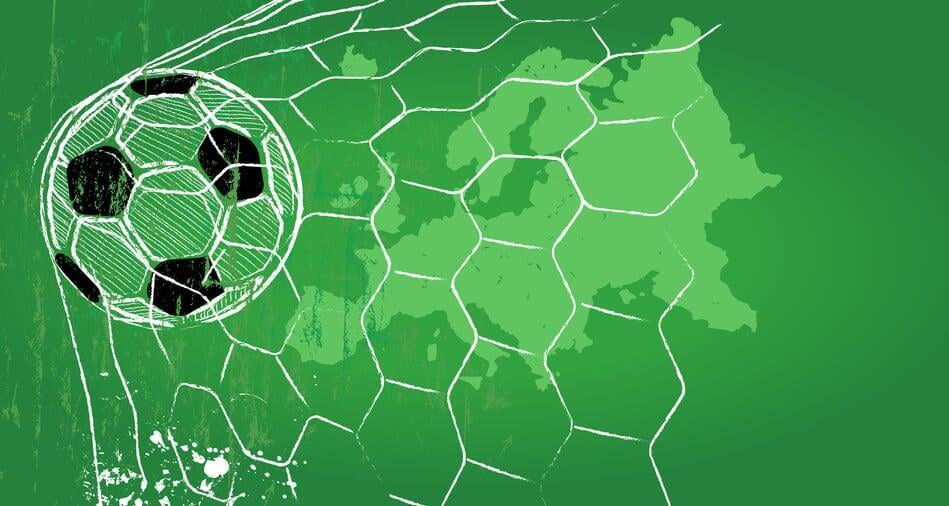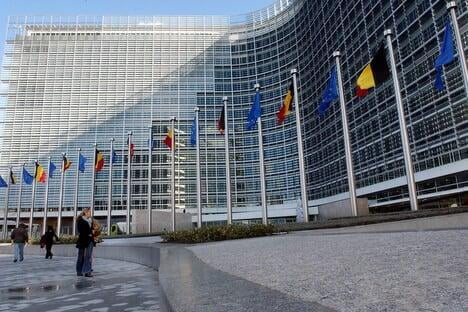German justice has just issued two decisions refusing to apply judgments of the Court of Arbitration for Sport (CAS) (and therefore, in turn, decisions of International Federations), on the grounds that they were contrary to European Union law. . This week, discover the two stops that can revolutionize arbitration in sport. Today the SV Wilhelmshaven v / FIFA & DFB case before the Bremen Court of Appeal (31.12.2014).[Part 1]
The necessary application of European Union law by the CAS
1. Un young football player italiano-argentin signed in February 2007 a professional contract with the German Club of SV Wilhelmshaven which evolves in 4th division. The player was previously an amateur with Argentine club Excursionistas (1998-2005) before signing to River Plate (2005-2007).
2. Following the signing of the player in Germany, his two former Argentine clubs demand the payment training compensation which they consider owed by the new Club. Referring to the FIFA Dispute Resolution Chamber in June 2007, the Clubs claimed € 100.000 and € 60.000 respectively. These requests were partially accepted by FIFA in two decisions of 5 December 2008 (CRL FIFA, December 5, 2008).
3. The German Club then appeals these decisions to the Court of Arbitration for Sport. October 5, 2009 (TAS, October 5 2009), the Single Judge of CAS confirms FIFA's decision.
4. Refusing to apply FIFA's decisions, the Club was sanctioned by the FIFA Disciplinary Committee on September 13, 2011 (fine and payment deadline of 30 days). The Club is also subject to a possible withdrawal of six points in the event of non-payment.
5. Faced with non-compliance with these decisions, FIFA then asks the German Federation to enforce them and to ensure payment of the fines. Despite the confirmation of the sanctions (in particular the withdrawal of six points) by the "internal court"of the Federation, the Club still refuses to execute them.
6. Under these conditions, on August 12, 2012, FIFA asked the Federation to deduct six new points from the classification of SV Wilhelmshaven.
The club having meanwhile been relegated to a division not managed by the Federation, it is the North German Football Association which applies the new sanction (confirmed on 23 August by the "Internal court"of the Federation).
7. In May 2013, the Club decided to bring the case before the civil courts in order to contest the withdrawal of points.
8. In the meantime, on 5 October 2012, a new decision by the FIFA Disciplinary Committee pronounced the Club's relegation to the lower division.
9. The Club is contesting this new decision before the CAS which nevertheless confirms FIFA's decision on October 24, 2013.
10. FIFA then calls again on the German Federation to implement this decision, which was ratified by the Northern German Football Association on December 7, 2013 and then by the "Internal court"on February 20, 2014.
11. This is how the club challenged this relegation (in addition to the withdrawal of six points previously pronounced) before the Regional Court of Bremen.
12. At first instance, the Court rejected the Club's request on the grounds that the latter had not appealed against the CAS decision before the Swiss Federal Court.
13. However, on December 30, 2014 (Bremen Court of Appeal, December 30, 2014), the Bremen Court of Appeal overturns the first instance decision.
Indeed, the Court considers that the decision of the CAS is contrary to the law of the European Union and cannot therefore be applied by the German Federation to sanction the Club.
The compatibility of FIFA rules with European Union law
Since the jurisprudence Bosman, the Court of Justice of the European Union recognizes the freedom of movement of workers.
However, the FIFA training compensation system is an infringement of this freedom. Therefore, the question is to determine what may be the acceptable limits of this infringement.
The case Bernard answer it.
The Court confirmed that "with regard to professional sport, (…) given the considerable social importance of sporting activity and, more particularly, football in the Union, the objective of encouraging recruitment should be recognized as legitimate and the training of young players".
Also, "training clubs could be discouraged from investing in the training of young players if they were not likely to obtain reimbursement of the amounts spent".
This is why the ECJ, recalling its jurisprudence Bosman, considered that a "system providing for the payment of training compensation in the event that a young player signs, at the end of his training, a professional player's contract with a club other than the one which formed him is, in principle, liable to '' be justified by the objective of encouraging the recruitment and training of young players".
However, the Court imposes a "such a system must be effectively able to achieve the said objective and proportionate with regard to the latter, taking into account the costs borne by the clubs to train both future professional players and those who will never become professional players".
In other words, since the training allowances must be borne by the player, they must correspond to the real costs of said training.
This SV Wilhelmshaven case sheds new light on the compatibility of FIFA rules with European Union law.
The FIFA regulations on the Status and Transfer of Players were contrary to the right to free movement of workers
Before the CAS, the German Club argued that the FIFA regulations on the Status and Transfer of Players were contrary to the right to free movement of workers on the basis of EU law (Article 45 of the EU Treaty) .
The Single Judge of the CAS rejected the application of Community law. Indeed, according to CAS case law (CAS 2006 / A / 1027, Blackpool FC c / Club Topp Oss, 13.07.2006), the Judge considers that this argument was at most valid only for the Player and not for the Club.
CAS also refuses to apply Article 6 of Annex 4 of the Regulations on the Status and Transfer of the Player which provides for special provisions for transfers within the EU, the player coming from a third country to the 'Union.
For the Bremen Court of Appeal this distinction between intra-EU and extra-EU transfers is irrelevant.
Indeed, the freedom of movement of workers must also apply to an EU national, whether or not transferred from a non-EU state. Thus, the provisions of Article 6 of Annex 4 must be applied to the present case, the player having Italian nationality.
Therefore, the judges consider that the non-application of these provisions, in favor of the provisions of Articles 4 and 5 of the aforementioned Annex, is contrary to the right to free movement of workers on the basis of EU law, in violation of German public order.
However, the judgment of the Bremen Court of Appeal will also recognize that the rules governing FIFA training compensation are "objective of encouraging the recruitment and training of young players".
In addition, Article 6 of Annex 4 is considered appropriate to achieve this objective and is therefore compatible with Community law.
En conclusion
The case is now before the Bundesgerichtshof, the German Civil Supreme Court. The latter has the possibility of asking a preliminary question to the CJEU concerning the validity of the FIFA regulations with EU law.
However, as it stands, this decision supports the argument that the CAS (and the Federations) must verify the compliance of their decisions with European Union law. (What the CAS still refuses to do).








